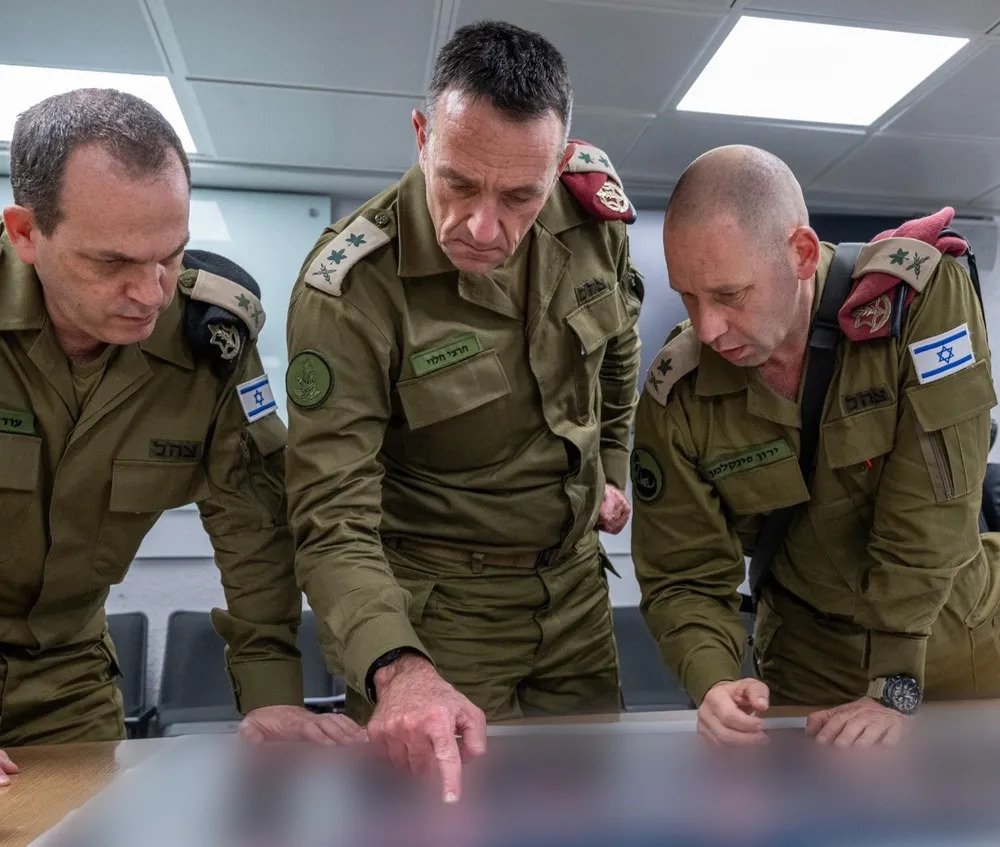|
Getting your Trinity Audio player ready...
|
Tragic Killing of Israeli Hostages in Gaza Sparks Outcry and Calls for Truce
Edited by: TJVNews.com
The recent killing of three Israeli hostages by Israeli forces in Gaza has sent shockwaves through the nation, prompting widespread anguish and renewed calls for a temporary truce and negotiations to secure the release of more hostages, as was recently reported by the New York Times. The disturbing details of the incident, where the hostages emerged shirtless from a building with a makeshift white flag, have raised concerns about the fate of the remaining hostages in Gaza, the report added.
According to the Israeli military, the three hostages had taken measures to convey their non-threatening intent, including removing their shirts to demonstrate they were not carrying explosives. According to the NYT report, despite these efforts, they were shot and killed by Israeli troops in clear violation of the military’s rules of engagement. Lt. Gen. Herzi Halevy, the Israeli military chief of staff, expressed regret and acknowledged the responsibility of the Israel Defense Forces for the tragic incident.
Protesters in Tel Aviv and relatives of hostages voiced their anger over the killings, urging the government to shift its focus toward negotiating another hostage-for-prisoners deal with Hamas, as was indicated in the NYT report. The incident has intensified calls for a temporary truce to reassess the situation and explore diplomatic solutions rather than continuing a full-scale offensive in Gaza.
Prime Minister Benjamin Netanyahu addressed the nation on television, expressing empathy for the families of the slain hostages. The NYT also reported that while acknowledging the heartbreak caused by the incident, he made it clear that the air and ground campaigns in Gaza would not be scaled back or halted. Netanyahu framed the conflict as “a war for our existence” and argued that military pressure was essential to both secure the release of hostages and achieve victory over Hamas, according to the report in the NYT.
The accidental killings on Friday further highlight the risks faced by over 130 people still in captivity after being kidnapped during the Hamas attack on Israel on October 7. As was noted in the NYT report, the Israeli military, in a preliminary inquiry, revealed that the soldiers were operating in Shejaiye, an area of Gaza City with a history of intense fighting. The soldiers, on high alert for potential ambushes by Hamas, were patrolling the area where at least nine Israeli soldiers were killed earlier in the week during efforts to root out Hamas terrorists.
According to the military’s early findings, the three hostages carried a stick with a white cloth, a makeshift indicator of non-hostility, the NYT report said. Despite their attempt to signal their harmlessness, one soldier opened fire, believing they posed a threat. Subsequently, the wounded hostage fled into the building, where a plea for help in Hebrew could be heard, according to the report. The battalion commander intervened, ordering forces to hold their fire. However, when the wounded hostage re-emerged, he was fatally shot.
In a briefing with reporters, an Israeli military official, speaking anonymously under military protocol, suggested that the hostages might have escaped or been abandoned by their captors.
Critics of Israel’s conduct in the Gaza conflict argue that the incident highlights insufficient measures taken to protect civilians. The NYT report noted that Sari Bashi, the program director at Human Rights Watch, expressed concern about the lack of hesitation before resorting to lethal force. Bashi emphasized the need for the Israeli military to investigate similar incidents involving Palestinian civilians and enforce civilian protections.
The three men killed in the tragic incident were identified as Yotam Haim and Alon Shamriz, both from Kibbutz Kfar Aza, and Samer Talalka, who had been kidnapped from Kibbutz Nir Am, according to the NYT report. These communities are located in southern Israel near the Gaza border.
Rear Adm. Daniel Hagari, the chief spokesman for the Israeli military, addressed the incident on Friday, acknowledging its sadness and pain. As was indicated in the NYT report, he pledged “full transparency” as the military investigates the unfolding of the tragedy and emphasized the Israel Defense Forces’ responsibility for the entire sequence of events.




